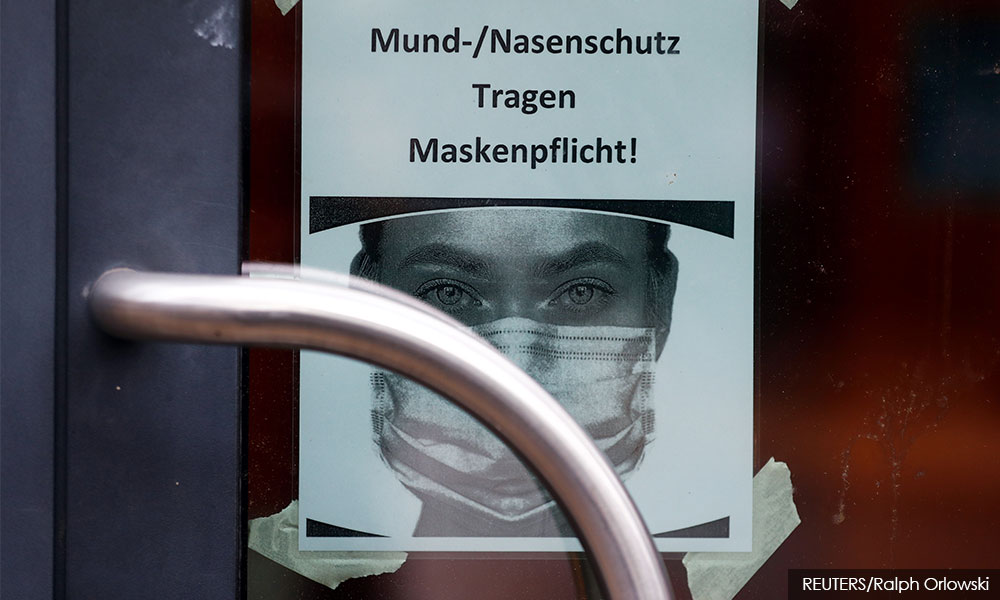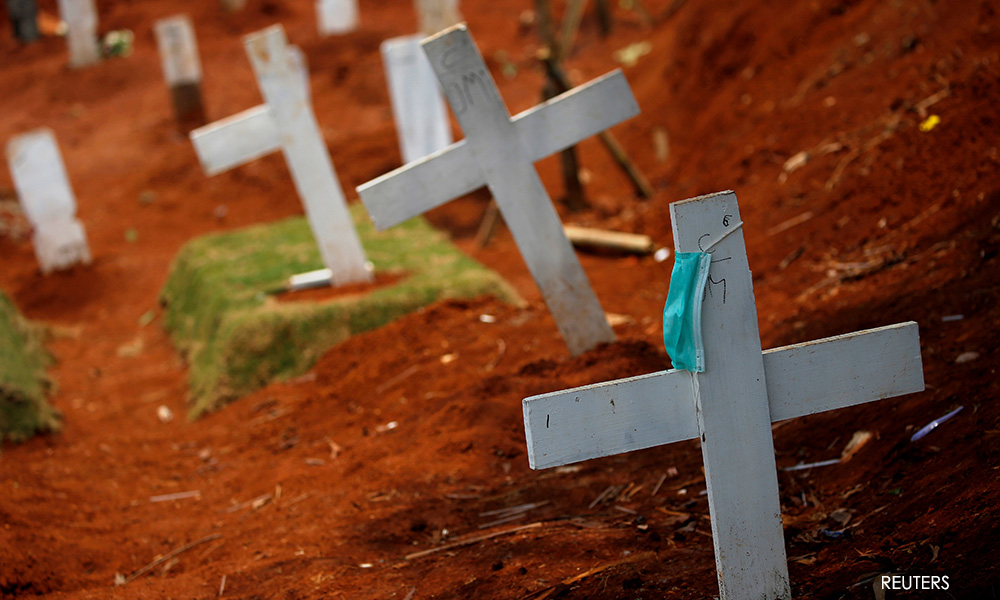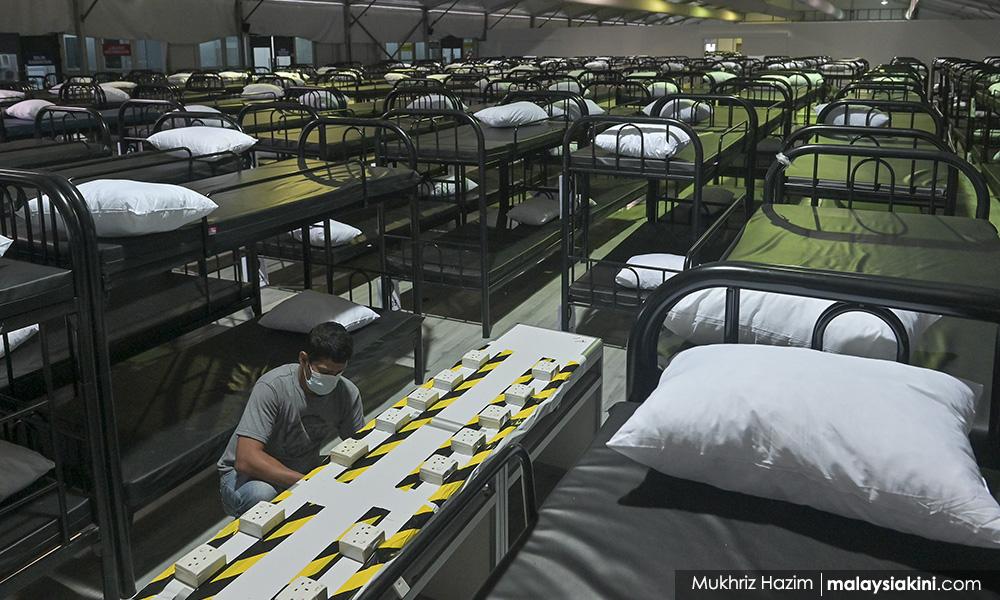A woman named Phoon Chiu Yoke used to be a kind person. She “sponsored orphans and sent money to them… she also sent money to us,” her father said. But something changed after she went to China, and when she came back to Singapore, “she was a completely different person.”
Now on the Internet, she is known as the “Badge Woman” because when a mall staff member asked her to put on a mask, she asked for the employee's “badge.”
“If you have no badge, why are you asking me to do something? Who are you representing?” she replied. She stared down at the staff member and refused to put on a mask as the laws required.
She was adamant, and the blue mask that she clutched in her hands were put into her pocket as she walked into the café.
When she was brought to court a few days later, she was again without a mask. When she saw the press photographers, she hooked the mask over only one ear. And when she left the courthouse, she made sure to take down her mask and smile widely at the cameras – mask-free.
People started to realise she was a serial mask-freer. She was seen mask-free at Newton Hawker Centre, Clarke Quay Central Mall and Bras Basah Complex. She does not seem to care.
Mask-free and beaten up in Sarawak
If you are a mask-freer in Kuching, Sarawak, however, you would be beaten up. A few days ago, a half-drunk man went into the Kota Sentosa market without a mask. The sellers reprimanded him. But the half-drunk man was defiant; he started yelling at the staff who asked him to leave.
Without a thought, the market staff started beating the man down into submission. By the time the police arrived, the half-drunk man was already gone.
I had heard of similar situations before, like the woman in Sibu who refused to wear a mask and was angry after being called “auntie”; or the woman who argued with the ETS train captain who asked her to put on a mask.
The pattern seems familiar: Some persons refuse to wear a mask as the law mandates, refuse vehemently upon bystanders’ prompts, break into rage and anger and use all in their power to ensure a mask does not hang over their ears.
Why are some Covid-19 rule-breakers so arrogant when you ask them to put on a mask? Why are they so selfish as to endanger the health of others?

Researchers from UK and US found that this could come from viewing the “wearing of a face mask as a sign of weakness”. The rule-breakers think the risk of contracting Covid-19 is low, and even if they have contracted it, their likelihood of recovery is high – notwithstanding the opposite reality.
Where the arrogance comes from
Some psychologists call this “narcissistic qualities… (which) characteristically lack empathy, have high levels of entitlement and grandiosity and chronically seek validation, admiration and control,” said W Keith Campbell from the University of Georgia.
This “lack of niceness” forms one part of the “Dark Triad” personality pattern that says, “I’m above the laws, I’m special, the rules don’t apply to me, and I don’t care about other people.”
Research from the US, Brazil, and Poland showed that Dark Triad personality traits make some people less likely to comply with laws that prevent the spread of Covid-19.
This explains why some Covid-19 rule-breakers are stubborn against rules that save everyone’s lives and would burst into a rage when you prompt them to do the right thing. How do we deal with them effectively?
Many countries have tried innovative ways.
In South Africa, they use public humiliation. They would use a loudspeaker in a mobile vehicle and shout out your actions in public. The purpose is to humiliate your non-compliance for everyone to hear and see.
In Rwanda and India, they use methods from the classroom by requiring rule-breakers to attend hours-long Covid-19 lecture at a stadium or write “I am sorry” 500 times.
India and the Philippines put physical exercises as part of the punishments, with frog-jumps, sitting under the midday sun, and 300 squat-like exercises that cost the life of a man.
But nothing is more terrifying than the punishments in Indonesia. Tired of constant flouting of Covid-19 rules, Indonesian authorities punish rule-breakers by locking them in a haunted house to frighten them.

Some have also been ordered to dig the graves of the Covid-19 death victims as repentance. Some have also been asked to sleep in an artificial coffin. But these were scaled back because “maybe it is too traumatic.”
Though innovative and occasionally entertaining, few of these punishments have reached the desired effects of deterrence. Arrogant rule-breakers were simply not scared by punishments like these.
The best punishment idea so far?
Likewise, in Malaysia, fines no longer have their effect when non-compliance still hangs high despite skyrocketing case numbers.
This brings me to perhaps the most underrated punishment idea so far. Bukit Aman Internal Security and Public Order deputy director (operations) Azri Ahmad suggested that in lieu of a fine, Covid-19 rule-breakers ought to be volunteers at the quarantine centres.
The basic premise of this idea is that the labour of rule-breakers ought to be put to appropriate use. Putting “brave” souls who flout the law by not wearing masks to work in quarantine centres with Covid-19 positive patients would be a good match.
Extending this further, Covid-19 rule-breakers could also be used as volunteers in other essential services with labour shortages. Volunteers are needed for non-medical purposes that could relieve our medical staff from extreme fatigue (even by a little) or medical facilities that are reaching a breaking point.

Volunteer undertakers are also carrying 30 times more bodies than usual, given the exponential growth in death rates of Covid-19 cases.
There is a good criminal punishment foundation in this idea. First, it accepts the position that deterrence (using punishment to scare people from committing crimes) does not work. That means scaring tactics like frog-squat, digging graves, haunted houses or sleeping in coffins have little impact on the number of Covid-19-related crimes. In fact, some might see it as a joke.
Second, it accepts the position that you probably cannot change a person’s character (rehabilitation). Phoon’s arrogance was strengthened despite the public shaming and court hearings. You can subject her to fines, but her arrogance will stay.
Third, the idea follows a more pragmatic understanding of punishment: Loss and gain. For the loss that society suffers from the Covid-19-rule-breaking, by exposing others to risk, we gain by their labour through volunteering where we need help.
By working at a quarantine centre, the most vulnerable victims (Covid-19-positive patients) gain, and society-at-large gains by another helping hand during a crisis.
Who knows, the rule-breakers might get a real badge this time. - Mkini
JAMES CHAI is a legal consultant and researcher working for Invoke, among others. He also blogs at jameschai.com.my. You may reach him at jameschai.mpuk@gmail.com.
The views expressed here are those of the author/contributor and do not necessarily represent the views of MMKtT.




No comments:
Post a Comment
Note: Only a member of this blog may post a comment.